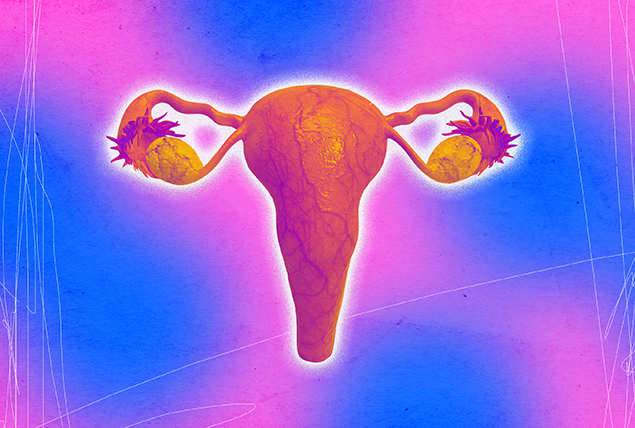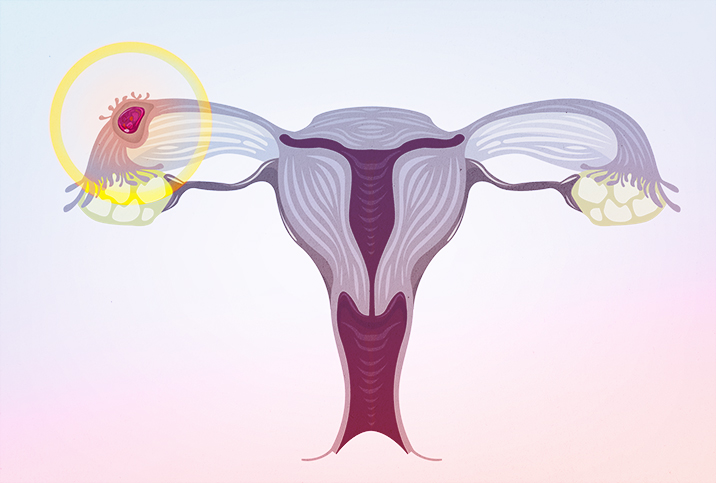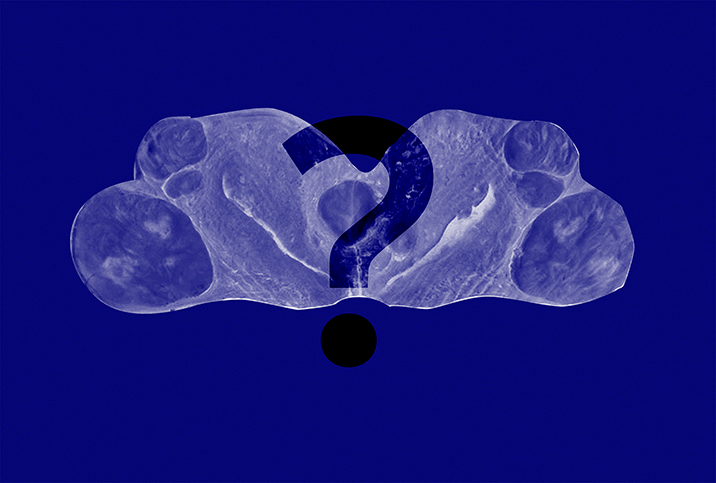Get to Know Some Common Fallopian Tube Complications

The fallopian tubes are organs in the female reproductive system, which also includes the ovaries, uterus, cervix and vagina. They provide a channel for mature eggs to travel from the ovaries each month.
Fertilization occurs in the fallopian tubes when an egg and a sperm cell meet. The fallopian tubes play a critical role in reproduction, though it is still possible to get pregnant without them, typically through in vitro fertilization (IVF).
Fallopian tubes are delicate and narrow, and their health is vital to fertility without assisted reproductive technology (ART). Complications within the fallopian tubes are a common cause of infertility in women.
Research notes that the fallopian tubes are highly specialized organs that are vulnerable to damage and surgical impairment. Various factors can cause fallopian tube damage, complications and blockages.
"Common medical conditions that affect the fallopian tubes are ectopic pregnancy, infection in the tubes, and blocked or damaged tubes," explained Jeffrey Marcus, M.D., a board-certified OB-GYN at North Atlanta Women's Specialists and the chief medical advisor at Femasys, a biomedical company with a reproductive health focus. "Risk factors that might increase your chances of complications include pelvic inflammatory disease, sexually transmitted infections, prior pelvic or abdominal surgery, endometriosis or prior fallopian tube surgery."
Infections and fallopian tube damage
One of the reasons sexually transmitted infections (STIs) can cause infertility is because of their harmful impact on the fallopian tubes. When certain STIs go untreated, they can spread to other parts of the female reproductive system. Specifically, gonorrhea and chlamydia can cause damage such as scarring or inflammation of the fallopian tubes.
Untreated gonorrhea and chlamydia can also lead to pelvic inflammatory disease (PID), which can damage the fallopian tubes. The Centers for Disease Control and Prevention (CDC) notes that 10 percent to 15 percent of women with untreated chlamydia will develop PID.
Chlamydia is particularly worrisome because it can spread and cause infection in the fallopian tubes while showing no symptoms.
Although less common, infections after a miscarriage or the insertion of an intrauterine device (IUD) may lead to fallopian tube damage.
Endometriosis
Endometriosis is a common condition that affects 10 percent of reproductive-age women globally. It's a disorder in which endometrium-like tissue grows outside the uterus, possibly in the ovaries, fallopian tubes, bowels, cervix, vagina, bladder or abdominal wall.
These growths can block the fallopian tubes or create scar tissue, according to Penn Medicine. No cure for endometriosis currently exists, but there are treatments.
All endometriosis-associated symptomology implicates the fallopian tubes, according to research done in 2020. In women with moderate to severe endometriosis, the disease can occur in the fallopian tubes at a rate as high as 60 percent.
Several studies also highlight an increased prevalence of infertility for those women with endometriosis. Even though the condition may occur outside of the uterus, normal fallopian tube function can be impaired by endometriosis.
Ectopic pregnancy
"The major complication from blocked fallopian tubes is infertility or ectopic pregnancy," Marcus said.
Ectopic pregnancy directly impacts the fallopian tubes and may be caused by damage to a fallopian tube. In a normal pregnancy, an ovary releases a mature egg that travels through the fallopian tube and joins a sperm cell. The egg is then fertilized and implants in the uterine wall. In the case of ectopic pregnancy, a fertilized egg most commonly implants in the fallopian tube, which is delicate and cannot sustain a pregnancy.
The ampulla, one of the four segments of the fallopian tubes where fertilization occurs, is the most common site for ectopic pregnancies.
More than 90 percent of ectopic pregnancies occur in a fallopian tube, though less commonly, a fertilized egg can implant elsewhere, such as the ovary or even the abdominal wall.
Fallopian tubes are about 1 centimeter in diameter and cannot sustain a pregnancy. Ectopic pregnancies are commonly caused by conditions that could obstruct an egg from traveling down a fallopian tube. These conditions include PID, endometriosis, prior surgery on a fallopian tube or a history of ectopic pregnancy.
Left untreated, an ectopic pregnancy is life-threatening to the woman, because it can cause the fallopian tubes to burst and lead to severe hemorrhaging. Ectopic pregnancies are never viable, and the only treatment is emergency care.
Once someone has experienced an ectopic pregnancy, the risk for another is elevated. However, it is still possible to carry a pregnancy to term after having an ectopic pregnancy.
Fallopian tubes and infertility
Fallopian tube issues are a common cause of infertility. About 30 percent of women with infertility complications worldwide have an associated fallopian tube condition.
"Blocked fallopian tubes are known as a silent infertility factor and can go unnoticed until checked," Marcus explained.
A blockage can obstruct an egg and a sperm cell from joining. The problem is most blockages are asymptomatic, though some women may experience pelvic pain. As a result, most people don't realize their fallopian tubes are blocked until they seek medical attention for infertility.
Uterine fibroids may also cause fallopian tube blockages.
Treatment for fallopian tube issues depend on the severity of tubal damage. For some women with less severe damage, surgery may be an option. But that's not always the case.
"Sometimes the tubes can be surgically repaired, but often, treatment involves removal of one or both of the fallopian tubes," Marcus said, adding that paying attention to the fallopian tubes is vital if someone is struggling with infertility. "Evaluation of the fallopian tubes is an essential part of the infertility diagnostic workup that can be sometimes overlooked."
A doctor can perform a hysterosalpingogram (HSG) or a laparoscopy to evaluate whether a fallopian tube is blocked or scar tissue is present.
Fallopian tubes are narrow, and because of their size, they are fairly fragile. They are essential for fertilization, but women with blocked tubes can still become pregnant. They may have to use some type of ART, such as IVF or intrauterine insemination (IUI), but they can carry a pregnancy to term.
Given how vital fallopian tubes are to reproductive health, it's important to keep them healthy, but issues can arise. Those issues can affect someone's ability to get pregnant or they can lead to a nonviable pregnancy that threatens a woman's life. Know that physicians can treat many fallopian tube complications, and if fertility is affected, there are solutions there, too.


















